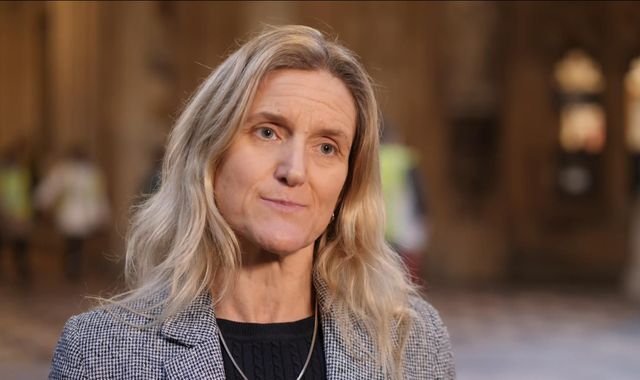
Assisted dying in doubt as rollout could be delayed until at least 2029

Assisted dying may not available in England and Wales until at least 2029 after MPs approved an extension of the rollout period.
An initial two-year "backstop" will now increase to four years after the change was proposed by Kim Leadbeater, the Labour MP behind the Terminally Ill Adults (End of Life) Bill.
Ms Leadbeater said she was disappointed to propose the extension and acknowledged the "upset" felt by some supporters of the bill, but said it was "more important to do this properly than to do it quickly".
The four-year delay, passed by the committee scrutinising the legislation, now means the law is unlikely to be operational until at least 2029 - the year by which the next general election must take place.
After the vote in the early hours of Wednesday, Ms Leadbeater said the bill will come back to the Commons in a "safer, fairer, and more workable" form.
MPs on the committee also voted for assisted dying to be available free on the NHS.
One MP said the extension of the backstop risked the bill being abandoned.
Tom Gordon, a Liberal Democrat MP, told The Guardian that "delaying implementation risks pushing it beyond the next election, where it could be abandoned altogether".
"We have thoroughly scrutinised and strengthened this bill, ensuring it is safe and robust. Every extra year means more unnecessary suffering for those who cannot afford to wait," Mr Gordon said.
The charity Humanists UK, which backs the assisted dying bill, said it regretted the delay.
Its chief executive Andrew Copson said: "Many other countries already have safe assisted dying laws and none of them has taken more than 19 months to implement them, apart from one that was subject to a court challenge.
"So it really shouldn't have to take four years for the one here. If it does, people who need this change in law will continue to die in ways not of their choosing."
But Conservative MP Danny Kruger argued that the bill was a fundamental change to the founding principles of the NHS, which he said would become the "national health and assisted suicide service".
Read more:
What is in the legislation?
Assisted dying is the biggest societal change in 50 years
The overnight vote marks the end of two months of committee scrutiny, and the bill is likely to return for a debate and vote by all MPs in the coming months.
Opponents of the bill have warned that people could be put under pressure to end their lives.
But supporters have said the law will allow people suffering with difficult illnesses the choice over when to end their lives.
Last month, Ms Leadbeater removed a key safeguard that said every assisted dying case must be scrutinised by a High Court justice.
Citing concerns this could overwhelm the court system, Ms Leadbeater instead proposed that cases will be reviewed by panels including a senior lawyer, a psychiatrist, and a social worker.
The bill would allow terminally ill adults in England and Wales who are expected to die within six months to request assistance from a doctor to end their life.
MPs initially voted in support of the bill in November, with 330 MPs supporting it and 275 rejecting it.
Meanwhile, the Isle of Man's parliament became the first part of the British Isles to pass assisted dying legislation.
Its assisted dying bill will be sent for royal assent, having had its final reading by members of the legislative council on Tuesday.
The bill, for adults resident on the island for five years who have a terminal illness with a life expectancy of no more than 12 months, could formally become law later this year with an assisted dying service potentially in place by 2027.





